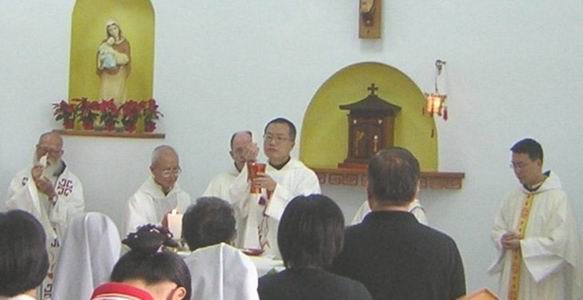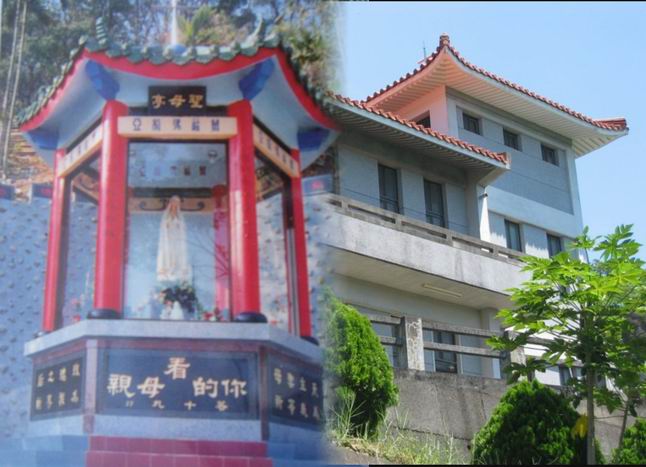|
|
Today we celebrate the feast of all the monks and nuns who have gone before us and have become saints by following the Benedictine-Cistercian way of life. We believe that these saints will also rejoice with us in heaven. We are expressing our joy in union with them as we have heard in the first reading by Isaiah, "I rejoice heartily in the Lord, in my God is the joy of the soul." |
|
Similar works are expressed in the canticle of Mary. As you know, at Vespers we sing, "My soul proclaims the greatness of the Lord, my spirit rejoices in God my Savior." This year, I have chosen these words to be written on my card for ordination to the priesthood. As I reflect on these words, I realize that it expresses my joy and thanks to God. Jesus, Mary, and the Saints of the Benedictine Family have especially accompanied me on this monastic journey. I benefit by listening to the words of the Gospel, following the model of Mary, and reading the writings of the Saints, both Benedictine and Cistercian. |
|
|
¡@ I remember reading the Rule of St. Benedict with Abbot Thomas Davis in 1991 while I was studying for my novitiate at our Mother House, Our Lady of New Clairvaux Abbey in the State of California. The Rule teaches us about the traditions of monastic life. Its spirituality and practices are from the Gospel and from the Desert Fathers up to the time of St. Benedict. When I read the Rule, I found out that it reveals the teachings of Jesus. For example, Chapter 27 says that the "Abbot will be concerned about the wayward monk and imitate the Good Shepherd." The Prologue (43-44) points out that Jesus is the light of life. We will accomplish good things by His light. These two examples from the Gospel of John were quoted by St. Benedict. In today's Gospel, St. John gives us another symbol for Jesus as the "vine." All of us are His branches. "Just as a branch cannot bear fruit unless it remains on the vine, so neither can you unless you remain in me." It is true that Jesus is the source of our Christian life and has provided each of us with the tools for growth in our spiritual life. We need to continue to nourish ourselves by reading Holy Scripture, praying to Him every day, and receiving His Eucharist regularly so that we can bear more fruit. In the Monastery, we have the opportunity to live in an environment of prayer. We have Mass and public liturgy, practice sacred reading regularly, and pray to Jesus even in our manual labor. These balanced elements of monastic life provide us with growth in Him and they ascend to Our Lord. We are just like branches of the vine needing moisture, fertilizer and pruning. Jesus has left us with all the tools we need. |
|
|
|
There is also a call to offer our fidelity in humble service. The glory that we can give to the Lord is not measured by His goodness. We are asked to contribute by remaining in Christ and by following His example by living according to His teachings. We also accept the work that He gives us. As you know, I prepared a new brochure this year relating to Cistercian vocations. I researched the lives of the holy men and women of our Cistercian Order throughout the centuries. Some of them are well ¡@ |
|
known such as St. Bernard of Clairvaux. Others are simple monks such as Fr. Joseph Marie Cassant who was beatified by Pope John Paul II in October 2004. Fr. Cassant had a very short life of 25 years and was in the Monastery only nine years. His spirituality is very similar to St. Therese of Lisieux. In his little way, he is the epitomy of devotion to God in fidelity and love. As you see, all these saints give witness to Jesus' teaching and they reach their holiness by obedience to God's will. Whether they are splendid or unsophisticated, they are hallmarks of God's grace in the Church. We ask the Cistercian saints to pray for our protection and help us in our journey towards God. |
|

